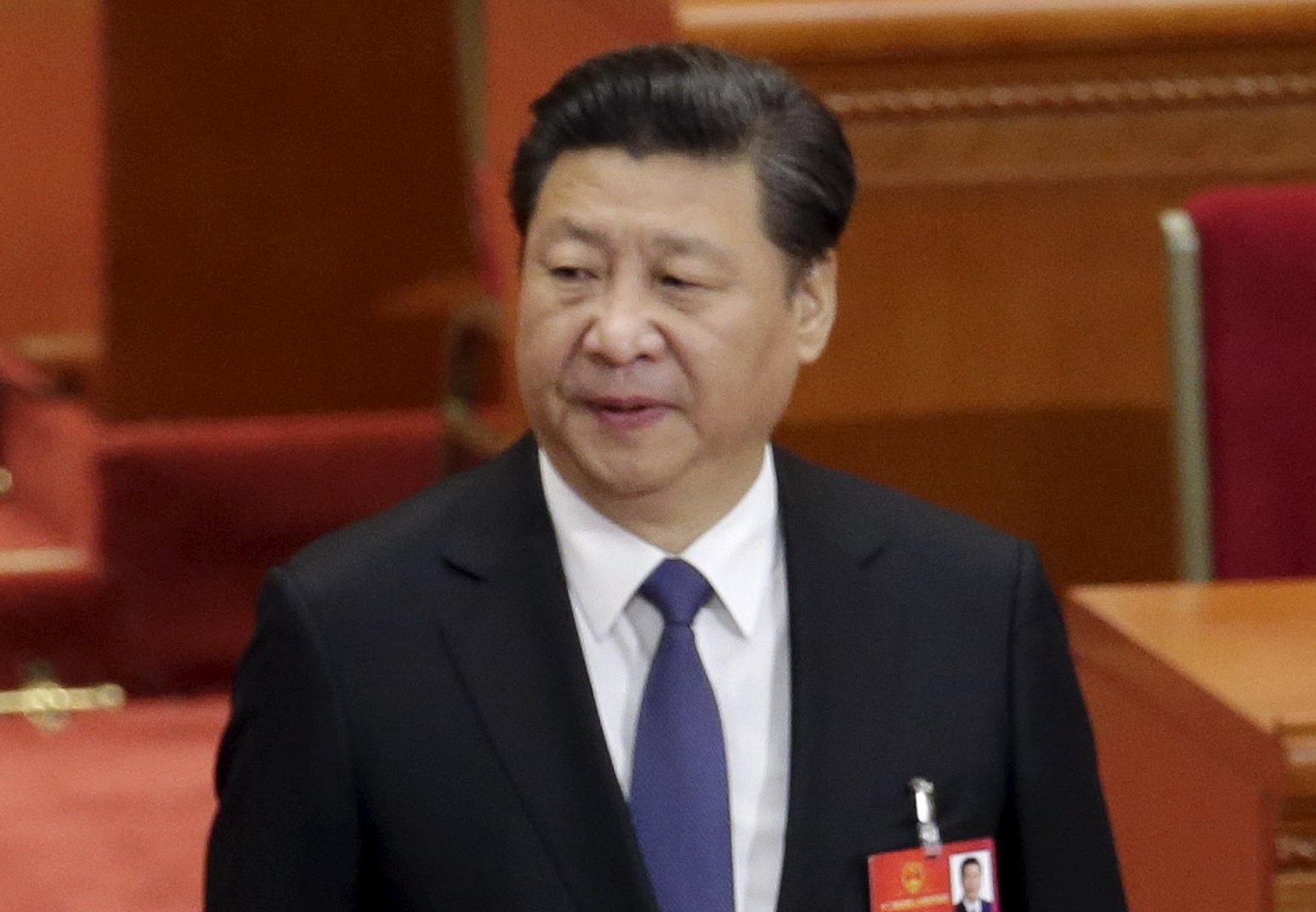
The Chinese New Year holiday, approaching this weekend, is traditionally a time of gift-giving and celebration in the Middle Kingdom. This year, no one is likely to be celebrating more than China’s President Xi Jinping.
On Monday, Xi's US counterpart signed an order withdrawing American support for the Trans-Pacific Partnership. The move fulfilled one of President Donald Trump's central campaign pledges. Since the 12-nation free-trade pact was a Washington initiative, and other signatories made concessions largely in expectation of access to the huge US market, his signature all but issued the deal's death warrant. Trump touted the move as a “great thing for the American worker.”
In fact, it's a great thing for the Chinese economy and government. One of the few things that seemed clear about Trump's foreign policy was that he wanted to get tougher on China -- to limit its geopolitical ambitions and end its allegedly unfair trade practices. He's just made both tasks much harder.
Regardless of Trump’s constant vilification, the TPP was a key part of the US strategy to contain and influence a rising China. Trump and his appointees have talked instead of imposing "peace through strength" in Asia -- threatening to rethink the One-China Policy, block China from accessing its artificial islands in the South China Sea and build up US naval forces in the region. All any of this is likely to do is embolden Chinese hardliners and raise the costs to the US of maintaining its preeminence in region.
It's also likely to cost the US some of its allies. A successful TPP would've bound important economies around the Pacific Rim, from Japan to Vietnam to Chile, more closely to the US, while solidifying America’s presence in the most vibrant and vital part of the global economy. Asian nations now have every reason to question US commitment and staying power, not to mention the promises of its leaders. Several will focus their energies on China's own free-trade pact for the region, which will increase rather than decrease their dependence on the Chinese economy. If Trump asks for their backing to roll back Chinese expansionism, they're unlikely to answer the call.
By contrast, a successful TPP would've put pressure on China -- which isn't a signatory to the pact -- to respond. In theory, to compete, it would've had to open its markets further to foreign companies and begin abiding by rules of trade and business written in Washington. (Indeed, at least some reformers in China privately welcomed the deal as a means of encouraging liberalisation at home.) Trump's threats of tariffs are unlikely to accomplish the same goal.
And if nothing else, why would a supposedly sly negotiator voluntarily give up one of his most powerful points of leverage? Even if Trump genuinely hated the TPP, he could've maintained an air of uncertainty about his intentions (this, at least, he seems to excel at). Instead he's shown his hand before any real bargaining with China has begun. So much for the art of the deal.
If you think none of this matters very much, then you’re dealing in “alternative facts.” The future of American business lies in Asia, where hundreds of millions of people are getting richer by the day. US exporters need access to these markets. Businesses need clarity of rules across borders and the ability to build inexpensive and reliable supply chains. Bilateral free-trade agreements, which Trump claims to favour, won't suffice.
And what about the jobs threatened by the TPP? Well, the pact would indeed have killed off some jobs -- in China. By awarding preferential treatment to exports from China’s low-cost competition, especially Vietnam, the TPP would likely have greased the flow of manufacturing jobs out of the mainland. That would've placed extra strain on a Chinese economy already struggling with fading competitiveness, an aging workforce and slowing growth.
Trump claims that as a businessman, he intends to run the most business-friendly administration ever. But trashing TPP isn't good for US business. It isn't good for US farmers, who stood to gain access to the lucrative Japanese market, among others. It's not going to make America safer or reduce the costs of maintaining security and freedom of navigation in Asia -- quite the contrary.
Perhaps Trump will get a few public-relations brownie points from tweeting the news to his followers. Beyond that, he’s hurt American business, pulled the rug out from under US allies and damaged American prestige -- perhaps irreparably -- in the most economically critical region in the world. Happy new year. - Bloomberg View